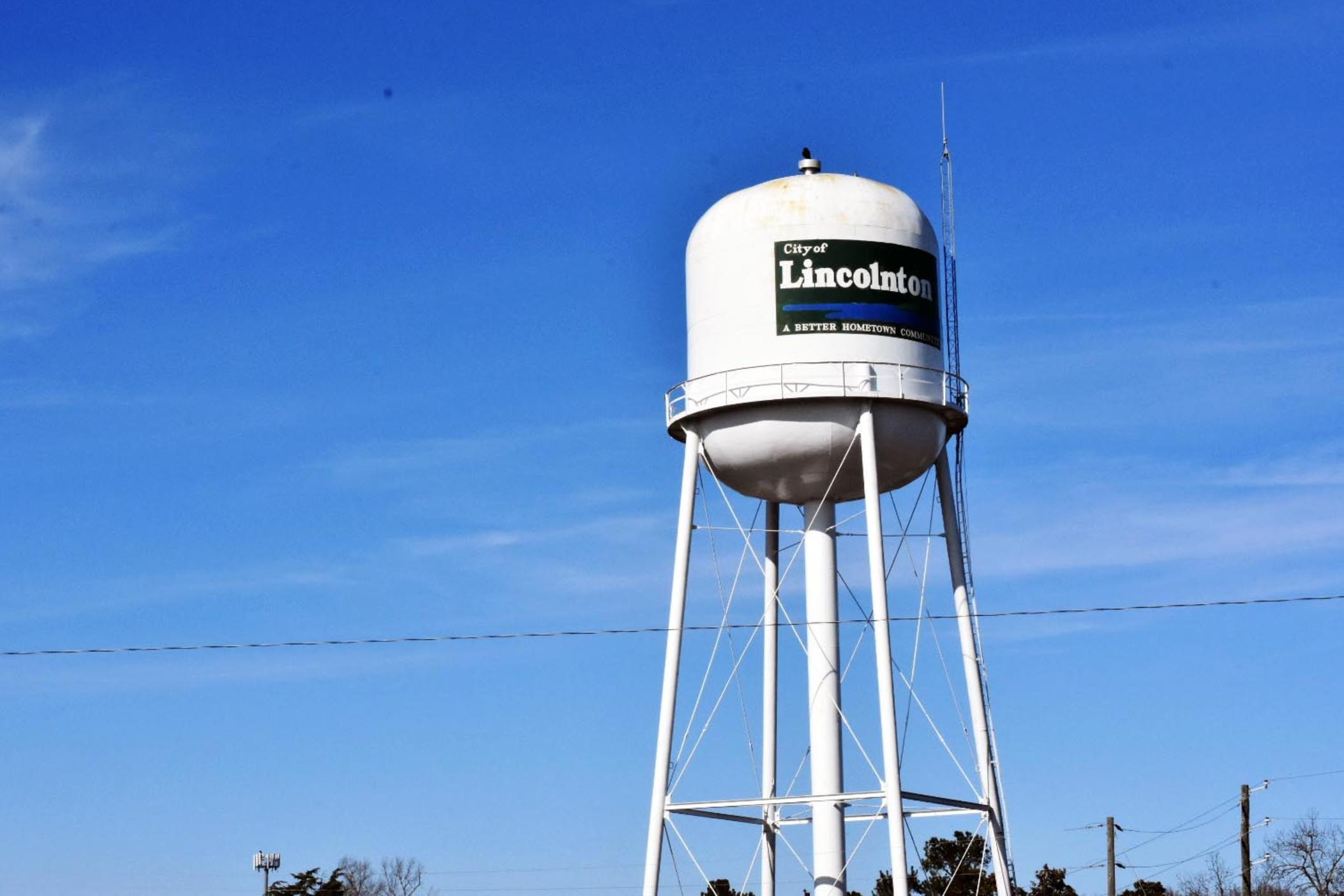Section Branding
Header Content
Battleground: Ballot Box | The complicated story of Lincoln County's proposed poll closure
Primary Content
It’s been nearly a decade since the U.S. Supreme Court ruling that ended federal oversight of election changes in Georgia and other states with a history of racist voting laws. Since then, Georgia has shuttered more than 10% of its polling places, even as the voter rolls have grown by more than a million people.
So when Lincoln County, on the South Carolina border, announced plans to consolidate from seven locations to one, residents and voting rights groups sounded the alarm.
But like nearly everything else we talk about in regards to voting, it’s not as simple as it seems.
Fewer poll workers, cumbersome new voting equipment, scarce budgets and changing voter behavior means some elections directors across the state — and the country — are facing difficult decisions.
This week, we take a deeper look at a story I reported with the Center for Public Integrity and NPR about what Lincoln County can tell us about the present — and future — of the fight for voting rights.
MORE: A Georgia county set off a tense debate by planning to reduce polling sites
Picture this: It’s Wednesday, Jan. 19, at the Lincoln County Board of Elections office. The scene is awkward, tense, uncomfortable, as a half-dozen voting rights advocates file in to deliver a petition that would temporarily halt plans to shutter polling places.
After spending the afternoon anxiously watching the front door for the petitions she knew were coming, Elections Director Lilvender Bolton gives a defiant stare as she takes the thick stack of papers into her tiny office.
Following the delivery of hundreds of signatures, the voting rights groups hold a small press conference in front of local TV cameras and reporters.
Denise Freeman, a Lincoln County resident rallying opposition to the plan, let out a deep sigh.
“It is unconscionable that we would even have anyone to think about closing precincts in 2022," she says. "It takes us back to an era that we thought that we would never have to go back to.”
Lincoln County had seven polling places. The elections board meeting that night would consider a vote to close them all and open just a single site. It sounds like voter suppression, right?
Rewind to a few hours before that: I meet Lilvender Bolton outside her office. She lets out her own sigh about how the county and her office have been portrayed in the media.
“I would never do anything to disenfranchise anybody from voting," she says. "People can tell you I will go over and beyond. I'll do whatever is needed ... and I've always been that way.”
Bolton, who is also Black, is one of many elections directors around the country who is just trying to survive after the pandemic, the 2020 election and Donald Trump's attempts to overturn the results all wreaked havoc on what is normally an mundane, boring, important job.
But the national spotlight in recent weeks has fallen on Lincoln County, a so-called “sportsman’s paradise” of about 7,700 people.
Bolton says her elections board was planning to have all Election Day voters come to the county’s recreation complex, which could have more machines and staff and space than anywhere else in the county.
"Oh my goodness, it's a it's a large gym, actually," she tells me. "And there I could put out up to 40 BMD machines, I could put out up to six or eight scanners, whatever was needed, and I could put all the way up to 14 poll pads."
Georgia has become the epicenter of the voting rights fight, so much so that President Joe Biden chose it as the site of a major speech on voting rights last month.
It’s also where Republicans enacted a 98-page overhaul of voting laws in 2021 based, in part, on false claims of fraud pushed by former President Donald Trump.
So into this charged atmosphere comes the Lincoln County plan. Some voting advocates describe it as an example of voter suppression.
RELATED: Voting rights groups temporarily halt plans to close polls in Lincoln County
But local election officials say they proposed consolidation because the county doesn’t have enough resources for the current configuration and more voters are casting absentee and early ballots. Some of the Lincoln County polls are cinderblock buildings, hard to heat and cool. Others are small — about the size of a studio apartment.
Lincoln County voted 68% for former President Donald Trump last year, and less than one-third of the population is Black. It’s a rural county where getting into downtown Lincolnton can be an issue for people without reliable transportation. But Bolton says there would be rides available for those who need it, as well as the other, more popular methods of voting — including two Saturdays of in-person early voting.
"We have made the arrangements that if you need a ride to the poll, we can provide that," she said. "If you'll just call, we can get you a ride. Absentee ballots are always there, and then we'll be here doing 17 days of advance voting."
So my colleagues at the Center for Public Integrity and I dug in to voter rolls, polling place locations and other election data to see who would be affected by this proposed change. What we found sheds a lot more context on the decisions local elections officials are considering:
- No more than a few hundred voters cast ballots at each polling place set to be closed in the past three general elections.
- Around three-quarters of the county’s votes were cast via early or absentee ballots in the 2020 presidential election and 58% in the 2018 midterms.
- With the consolidated location, the median distance to travel to the polls would increase by about a mile for Black voters and nearly three miles for white voters. Voters in the most remote regions of the county, though, would have farther to travel.
- An analysis of voter records shows 75% of voters would be within eight miles of the proposed new polling site. The current polling places are all within that radius.
The data we used did not have race information for 386 voters, and precise locations for 122 voters were not available.
So people in the farthest corners of the county might have more difficulty traveling to the one polling place, but most voters don’t wait until Election Day to cast their ballots.
Armed with our findings, we talked to some elections experts about what this all means.
"That really complicated situation is to me, a sign of how these previously kind of very sleepy, nobody paid attention, everyone assumes it would be done in a fair and nonpartisan manner kind of positions are now being really politicized," Gowri Ramachandran with the Brennan Center for Justice said.
It’s not just Lincoln County — and it’s not a good sign for trust in elections.
"People just aren't taking it for granted that, you know, it's going to be done in a fair manner anymore," she continued.
Rachel Orey, senior policy analyst for the elections project at the Bipartisan Policy Center think tank, says the response to the proposal probably indicates it’s not the best idea.
"I would think that the community backlash that they're getting, some of it is nationalized because of the national narrative, but demonstrates to me that that this decision alone is probably not the one that best serves voters."
Her think tank has done calculations on roughly how many Election Day polls local governments should have, and in this case she would recommend three for Lincoln County, and that every county should have at least two.
Orey also says more can be done to address the needs of local elections officials to keep them from having to make these kinds of drastic decisions.
"I don't think there has been enough focus on the fact that elections are just so drastically under-resourced, and it makes conversations like this really difficult when you know it's not necessarily an attack on voting rights," she said. "But you know, it sort of looks that way when people don't understand that elections and election offices are often just operating under strenuous and difficult circumstances, where if you have such a small budget and enhance something in one area, that does require walking something else back."
Georgia has a history of problematic election laws. And since the Shelby v. Holder decision in 2013, some counties in rural Georgia have cut the number of polling places, while metro Atlanta counties have failed to add enough voting sites to keep up with population growth.
All that means the question of how to allocate resources to serve this county’s nearly 6,100 registered voters is resonating far beyond its borders. The debate has become a microcosm of the increasingly contentious and bitter national brawl over access to the ballot.
There’s a lot more in the weeds about the election board being reconstituted, the backstory of how Lincoln County got to this point and the rationale often given for cutting so many sites, which you can read at the link below.
MORE: A battleground fight over polling places and voting rights in Georgia
But let’s end today’s episode by visiting the Lincoln County elections board meeting, just a few hours after stacks of petition signatures were delivered.
The conflicting ideas on how to serve voters came to a head that night.
Many residents spoke about the need for multiple polling places spread throughout the county. Among them was Greg Grant, who said for people living in the far corners of the county, the new site in Lincolnton might as well be in a different state.
“There's a lot of people that live in the northern end of the county that work in Elberton and Athens, that the commute back into town is just more of an inconvenience,” he said. But he added most people he knows will do whatever they have to do to cast a ballot.
The elections board meeting began with an announcement that no vote would be taken that night on closing polls. It ended abruptly after residents got into an exchange with the board chair over the proposal and the county’s plan to offer rides to the polls for any voter who called.
A Georgia law allows residents to halt plans to consolidate polling places if at least 20% of a precinct’s voters sign a petition opposing the change. Voting rights groups say they gathered enough to cover three precincts. Bolton says there was just one, and both sides are digging in to figure out what happens next.
Another meeting will likely be called soon to decide the fate of Lincoln County’s seven existing polling places.
It promises to be just as contentious as the last.
Before all the hubbub at the meeting I asked Bolton if she would do anything differently. No, she says: “It’s for the betterment of the community. Not pointing fingers at anyone, not trying to suppress anybody's vote."
Battleground: Ballot Box is a production of Georgia Public Broadcasting. Our producer is Jess Mador, our editor is Wayne Drash. Our engineer is Jesse Nighswonger, who also wrote our theme music. You can subscribe to the show on Apple Podcasts or anywhere you get podcasts. Thanks for listening.



